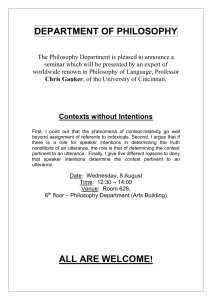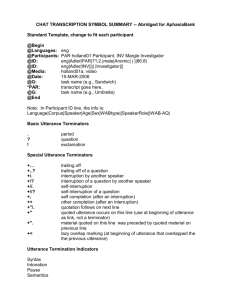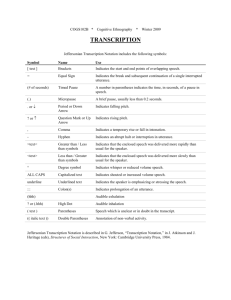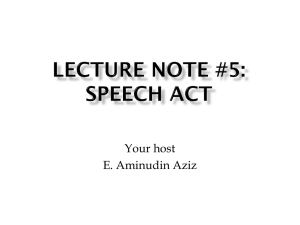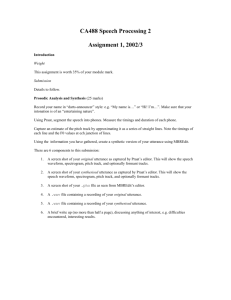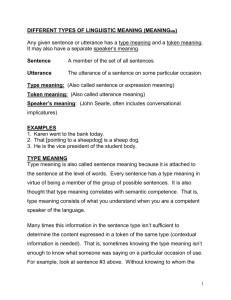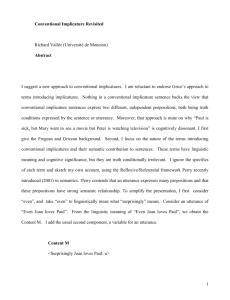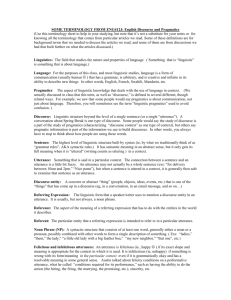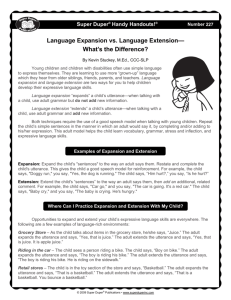Notes
advertisement
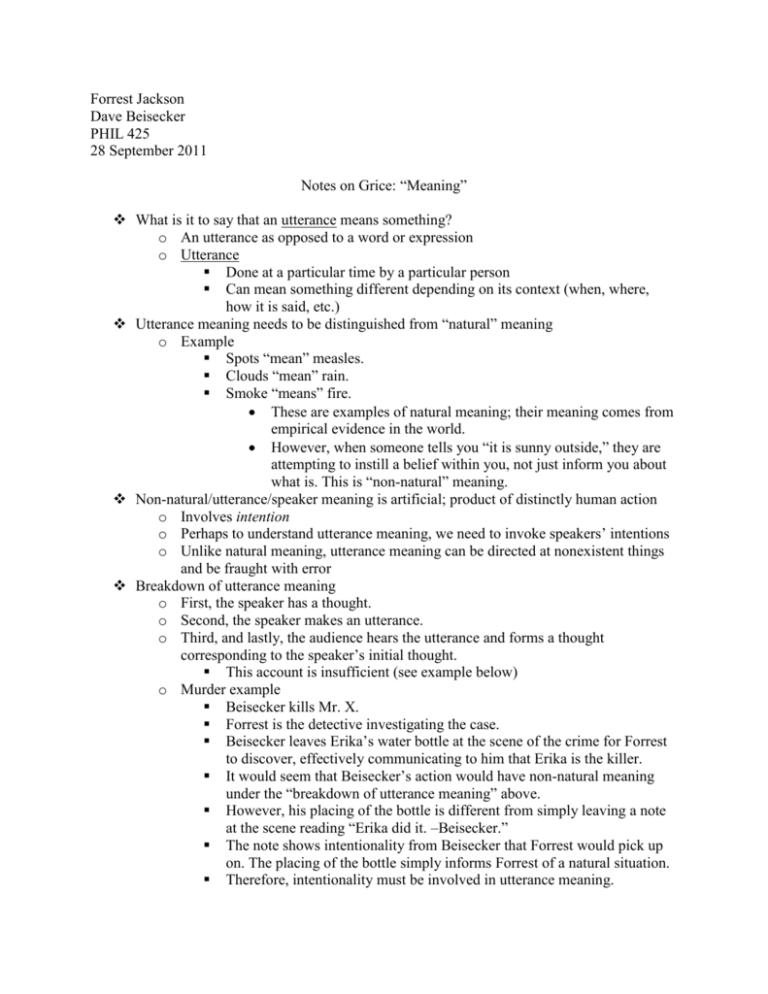
Forrest Jackson Dave Beisecker PHIL 425 28 September 2011 Notes on Grice: “Meaning” What is it to say that an utterance means something? o An utterance as opposed to a word or expression o Utterance Done at a particular time by a particular person Can mean something different depending on its context (when, where, how it is said, etc.) Utterance meaning needs to be distinguished from “natural” meaning o Example Spots “mean” measles. Clouds “mean” rain. Smoke “means” fire. These are examples of natural meaning; their meaning comes from empirical evidence in the world. However, when someone tells you “it is sunny outside,” they are attempting to instill a belief within you, not just inform you about what is. This is “non-natural” meaning. Non-natural/utterance/speaker meaning is artificial; product of distinctly human action o Involves intention o Perhaps to understand utterance meaning, we need to invoke speakers’ intentions o Unlike natural meaning, utterance meaning can be directed at nonexistent things and be fraught with error Breakdown of utterance meaning o First, the speaker has a thought. o Second, the speaker makes an utterance. o Third, and lastly, the audience hears the utterance and forms a thought corresponding to the speaker’s initial thought. This account is insufficient (see example below) o Murder example Beisecker kills Mr. X. Forrest is the detective investigating the case. Beisecker leaves Erika’s water bottle at the scene of the crime for Forrest to discover, effectively communicating to him that Erika is the killer. It would seem that Beisecker’s action would have non-natural meaning under the “breakdown of utterance meaning” above. However, his placing of the bottle is different from simply leaving a note at the scene reading “Erika did it. –Beisecker.” The note shows intentionality from Beisecker that Forrest would pick up on. The placing of the bottle simply informs Forrest of a natural situation. Therefore, intentionality must be involved in utterance meaning. o Affair example Mr. Y is having an affair with Mr. X’s wife and is discovered in a “compromising position” with her. Beisecker draws a picture of what he saw and shows Mr. X. The drawing of the picture contains intentionality on Beisecker’s part and is thus an example of non-natural/utterance meaning. If Beisecker took a photograph of Mr. Y and Mrs. X and then showed it to Mr. X, there would be no intentionality involved; it would simply be the presentation of a fact for Mr. X to discover (natural meaning). o Therefore, a speaker must intend for his performance or utterance to produce an appropriate mental state in his audience (be sensitive to the audience’s states of mind). In order to have utterance meaning, the speaker’s performance/utterance/action must be intended to produce in the audience a certain mental state; the audience must recognize the performer’s intention and how it is operative upon their mental states. A worry concerning the theory of Grice o This notion of speaker meaning seems to ignore aspects of regular linguistic convention. For example, when Beisecker talks, he doesn’t necessarily care about the mental states of his audience at the precise moment he is talking. The point of Grice o Grice focuses on speech acts themselves. A speech act is one that is the product of a baroque, complex intention to bring about a certain effect in an audience by means of the audience recognizing that intended effect.
